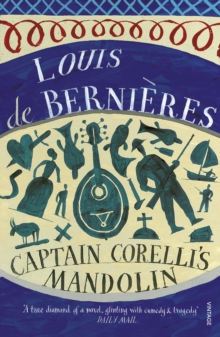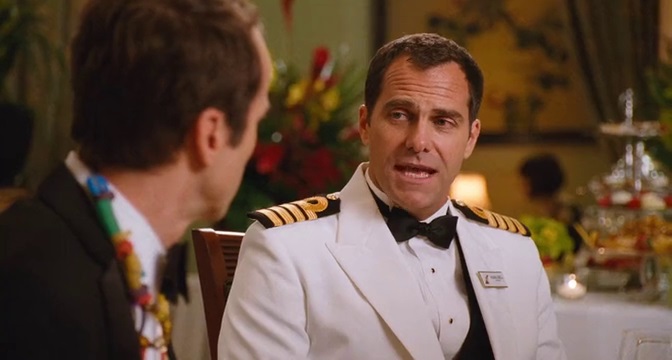Captain Corelli&
Apr 11, 2001 - The 'real' Captain Corelli is now aged 90 and enjoying his moment in the limelight. Lucid and courteous, Amos Pampaloni vividly recalls the days in September 1943, when he participated in the tragic revolt of Italian soldiers against their former German allies on the Greek island of Cephalonia.
Extracts from this document. Introduction How is the character Carlo portrayed by Louis de Berni�res in Captain Corelli's Mandolin? War stories have been written for centuries by authors to captivate their readers. It is the most extreme situation that someone could possibly come across in life. Authors have used this genre ass a catalyst for testing the hearts, minds and souls of their characters. It would be imprudent to predict how someone will react in such circumstances or how their character will be shaped or changed. For this reason an author can use a war setting to help show a character's inner-self or their self-discovery.
War itself is a conflict between two or more armies, however there will also be conflicts between characters and of feelings. In Captain Corelli's Mandolin, Louis de Berni�res puts the unsuspecting Carlo, a man full of personal conflicts, into the midst of a war1 he never, truly wanted to be part of. Carlo's individual struggle with his sexuality and what feelings to hide or show is drawn out by the war. He is there at its start on Greek territory and is there at its collapse, so why has Louis de Berni�res used this character and for what purpose? More importantly how has he portrayed Carlo?
Carlo's physical appearance is very symbolic and important in reflecting his feelings. On his (Italian) side of the line he was the 'biggest man that anyone had ever seen'. Middle Carlo selflessly gave Francesco all that he had. Francesco was his means to becoming a hero. In times when Carlo questioned desertion, it was his love for Francesco and intense commitment to doing something worthwhile, which made such an idea implausible and so he kept fighting. This also demonstrates a rather different approach to war - as a means to be heroic.
Captain Corelli's Mandolin Film
In the end it was all thrown back in his face. Francesco discovered that the white death had 'got him' and in giving himself up to the Greeks was blown-up by a shell.
Captain Corelli's Mandolin Quotes
Willingly Carlo risked his own life in an attempt to try and save Francesco's life, writing in his memoirs 'I was offering myself to their guns'. Love of Francesco blinded Carlo to the reality of war, what seemed to him at the beginning to be more 'like a game, a challenge of manhood, a matter of honour.' Became 'an appalling reality' as Francesco died and he realised his mistake. Carlo's whole intent was to be ennobled by his love and become a hero. Although the Greeks gave him a hero's cheer when he clambered out of his trench to retrieve Francesco's body, it was not enough.
Carlo had almost been acting selfishly - he was too focused in becoming a hero that he had not calculated the risks. He had not been able to see past love to the horrific realism of war. Looking back he admitted that the wound he received in that war was self-inflicted. Conclusion Carlo's character has permanence to it, his humility, selflessness and compassion, which spur him on to great deeds and are the traits of a hero; it will reappear in the future and can be traced in the past. It therefore seems appropriate that he was buried 'in the soil of Odysseus' time, as though he had belonged there from the first.'
In many ways his permanence is like that of the Island Cephallonia; having survived many times of hardship the island still pokes out of the Ionian sea; even after death Carlo's character has not disappeared because there will always be heroes for however great or well-known deeds. Louis de Berni�res also portrays this because there is not a sense of finality about Carlo's death. It is as though, in the earthquake, Carlo's character says 'I'm still here and I'm not going anywhere' to the Italian fireman who sees the skeleton of Carlo in one of the few fissures opened in the earth.



If de Berni�res' ideas of heroism are in fact a reality then I find it as a great comfort that there are people inhabiting the same planet as interesting, kind and undemanding, as Carlo; if not real, a beautiful piece of literature. 1 The Second World War and the Italian invasion of Greece. He later finds himself posted to the island of Cephallonia 2 an act started at puberty 3 Carlo said 'I got the idea from Plato' 4 Mussolini.
This extract from Captain Corelli’s Mandolin by Louis de Bernieres is a popular reading choice for civil wedding ceremonies: Love is a temporary madness, it erupts like volcanoes and then subsides. And when it subsides you have to make a decision. You have to work out whether your root was so entwined together that it is inconceivable that you should ever part.
Because this is what love is. Love is not breathlessness, it is not excitement, it is not the promulgation of promises of eternal passion. That is just being in love, which any fool can do. Love itself is what is left over when being in love has burned away, and this is both an art and a fortunate accident. Those that truly love have roots that grow towards each other underground, and when all the pretty blossoms have fallen from their branches, they find that they are one tree and not two.